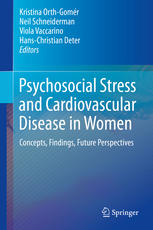

Most ebook files are in PDF format, so you can easily read them using various software such as Foxit Reader or directly on the Google Chrome browser.
Some ebook files are released by publishers in other formats such as .awz, .mobi, .epub, .fb2, etc. You may need to install specific software to read these formats on mobile/PC, such as Calibre.
Please read the tutorial at this link: https://ebookbell.com/faq
We offer FREE conversion to the popular formats you request; however, this may take some time. Therefore, right after payment, please email us, and we will try to provide the service as quickly as possible.
For some exceptional file formats or broken links (if any), please refrain from opening any disputes. Instead, email us first, and we will try to assist within a maximum of 6 hours.
EbookBell Team

4.7
86 reviewsNot long ago, it was assumed that coronary heart disease mainly--or only--affected men. Now that CHD is recognized as a leading killer of women as well as men, numerous research studies have been made of its diverse presentations in women, causal factors, and possibilities for prevention and treatment.
The expert contributions to Psychosocial Stress and Cardiovascular Disease in Women span the results of this cross-disciplinary awareness. This progressive resource takes a three-dimensional approach to its subject, focusing on epidemiology and risk factors for heart disease in women, the psycho- and neurobiology of stress and coronary disease, and promising clinical interventions. Chapters identify and analyze multiple intersections of social, biological, and psychological factors in affecting women's heart health, from the social dimensions of depression to genetic/environmental interactions to the demands of balancing work and family. These wide-ranging findings will assist and motivate professionals in choosing and creating interventions, developing appropriate prevention strategies, and reducing gender-based disparities in health care. Among the topics covered:
In particular this book will be helpful for cardiologists and other clinicians who may ask themselves why patients do not seem to make rational choices. "Why do patients not follow the advice they are offered?" is a common complaint. The role of psychosocial stress for patient compliance and adherence can be traced throughout the volume. It is emphasized in the chapters on psychosocial interventions along with other tangible and conceptual suggestions and experiences with psychosocial stress and life style change. Psychosocial Stress and Cardiovascular Disease in Women offers a deep practical level of understanding of this epidemic to help expand the work of health and clinical psychologists, sociologists, cardiologists, primary care physicians, and epidemiologists.